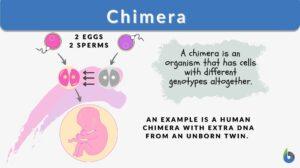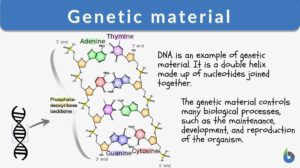Search Results for: recipient
Conjugation
Conjugation generally means the joining or coming together (union), such as in certain unicellular organisms (some bacteria,... Read More
Types of Transplants
Submitted to biologyonline.com on March 7, 2009 Published by biologyonline.com on March 29, 2009 Transplants are... Read More
Tap water enema
An injection of plain water into the rectum in order to stimulate a bowel movement. Uusally given to relieve constipation... Read More
Sonoporation
Definition noun A mechanical method of delivering molecules into the cell using sound, e.g. ultrasonic... Read More
Transfection
Definition noun (molecular biology) The process of deliberate introduction of nucleic acids into a recipient eukaryotic... Read More
Sexual reproduction
Sexual reproduction is a mode of reproduction involving the fusion of haploid female gamete (egg cell) and haploid male... Read More
Hfr strain
Definition noun A strain of bacterial that possesses the F factor integrated into the bacterial genome, hence, when it... Read More
Alloparenting-What Is It?
“Alloparenting—What Is It?” Sonja G. Rosas 13 September 2007 An Introduction To Alloparenting Every gregarious... Read More
Genetic diversity
Genetic Diversity Definition Each species is composed of individuals with their own set of genes. A gene is the inheritance... Read More
Hfr bacterium
Definition noun, plural: Hfr bacteria A bacterium that possesses the F factor integrated into the bacterial genome, hence,... Read More
Alloimmunity
Definition noun, plural: alloimmunities (immunology) A type of immunity that produces an immune response that is attacking... Read More
At Home in the Universe: The Search for the Laws of Self-Organization and Complexity
At Home in the Universe: The Search for the Laws of Self-Organization and Complexity ... Read More
Inoculation
Inoculation Definition In Immunology, inoculation is defined as the process of introducing an antigenic substance or... Read More
Homoplasty
Definition noun, plural: (1) (evolution) The acquisition of a similar form or structure between species of different... Read More
Electroporation
Definition noun, plural: electroporations A non-chemical method that transfers the genetic material into the recipient cell... Read More
Impalefection
Definition noun A method of delivering large molecules into cells using nanomaterials, such as carbon nanofibers, carbon... Read More
Vertical gene transfer
Definition noun (genetics) The transfer of genes from parents to offspring Supplement Gene transfer refers to the movement... Read More
Recombinant DNA
Definition noun Genetically-engineered DNA molecule formed by splicing fragments of DNA from a different source or from... Read More
Agglutination
Agglutination Definition What does agglutination mean? It generally refers to the process of sticking together or the... Read More
Phosphorylation
Phosphorylation Definition We can define phosphorylation as a biochemical process in which a phosphate molecule is added to... Read More
Substrate-level phosphorylation
Definition noun A type of phosphorylation in which the phosphoryl group is transferred from a donor compound (a... Read More
Abortive transduction
Abortive transduction Transduction in which the genetic fragment from the donor bacterium is not integrated in the genome of... Read More
Subliminal stimulus
Definition noun, plural: subliminal stimuli (physiology) A stimulus inadequate to generate an action potential and thereby... Read More
Gene transfer
Definition noun, plural: gene transfers The transfer of genes between organisms Supplement Gene transfer pertains to the... Read More
Genetic material
Genetic Material Definition What is genetic material? Genetic material is the hereditary substance in the cell. It carries... Read More
















